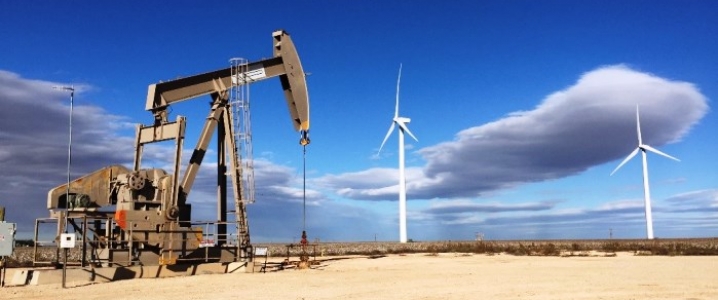The Permian has been attracting independent U.S. drillers and oil majors who want to capitalize on short-cycle returns in the world’s hottest shale play, but one of the world’s supermajors is not joining the large in-crowd comprised of drillers that are jumping on the shale bandwagon.
France’s Total—unlike competitors Exxon, Chevron, and Shell – thinks that the Permian is not the best allocation of capital to create value for the company and its shareholders.
Speaking at the CERAWeek in Houston this week, Total’s CEO Patrick Pouyanné told IHS Markit’s Vice Chairman Daniel Yergin that choosing where to invest is a question of allocation of capital.
“What we learn from this low cycle is that you can’t do everything,” Pouyanné said, adding that it doesn’t make sense for Total and its investors to allocate capital to gain access to the Permian to produce 50,000 bpd of oil.
Unlike its competitors, Total doesn’t have a position in the Permian, and it would be quite costly to try to gain one at this point in the game. For this reason, the Permian is not a priority for the French company, according to its chief executive.
“I have nothing against the Permian,” Pouyanné was quick to say, adding that “I think it’s an incredible area” for competitors who already have positions there.
“For a company like Total, it’s not just a matter of ticking the box to produce 50,000 bpd, it makes no sense,” the CEO said, adding that “when I think of areas of investment, I need to target 200,000 bpd-300,000 bpd if I’m a serious player.” Related: Shale Pioneer Issues Warning To U.S. Drillers
“I don’t think it’s the best allocation of capital. Having said that, never say never, the earth is round…[but] it’s not a priority,” Total’s CEO said at the CERAWeek.
On the one hand, Pouyanné’s words highlight the fact that the Permian—dubbed “the world’s hottest shale play”—is now too crowded for latecomers and the cost of accessing acreage is not worth the value that such a position could create. On the other hand, the comments show that Total currently has other priority areas in which to profit so it can return more of those profits to shareholders.
Pouyanné said those priority areas are the Middle East, Africa, the North Sea, deepwater, and liquefied natural gas (LNG).
“I prefer to spend my money on these five strengths, with the intent to be a leader in each of them,” Pouyanné said.
“I strongly believe that for our investors playing to our strengths has much more sense to create value than just trying to fill the gaps.”
“I love the Middle East,” Pouyanné said at CERAWeek, noting the low-cost oil and gas positions it has in Abu Dhabi, Qatar, and Iran.
In Africa, Total has just boosted its upstream Libyan operations by acquiring the 16.33-percent stake of the Waha oil concessions held by U.S. Marathon Oil Corporation for US$450 million.
At CERAWeek, Pouyanné said that this acquisition was “one of the best deals I’ve ever made” because it gave Total access to vast low-cost oil resources. Acknowledging the geopolitical and country-specific risks of doing business in Africa and the Middle East, Pouyanné said that there can’t be opportunities without risks.
In the North Sea, the acquisition of Maersk Oil that will close on March 8 is strengthening Total’s business and creates synergies to further push costs down, Pouyanné said.
In deepwater, Total sanctioned in December the first large-scale development phase of the Libra project offshore Brazil, with technical costs below $20 a barrel, and last month bought exploration licenses offshore Guyana, where Exxon has just made its seventh oil discovery.
In LNG, Total has recently bought Engie’s portfolio of upstream LNG assets, becoming the second-largest global LNG player behind Shell. Related: Oil Prices Rebound After EIA Reports Build In Crude Inventories
While short-cycle oil has been predominantly associated with the Permian, Total has a different concept of ‘short cycle’. For Pouyanné, short cycle means being able to turn on and turn off contractors and capex.
Acknowledging that the Permian will continue to boost its production, Total’s CEO still doesn’t think that the area is the best allocation for his company’s capital, especially without any existing position there.
In an interview with Bloomberg on the sidelines of CERAWeek, Pouyanné said:
“Total today is the most profitable major company without any shale.”
By Tsvetana Paraskova for Oilprice.com
More Top Reads From Oilprice.com:
- Is The Sky The Limit For U.S. Shale?
- Angola Faces Oil Industry Crisis
- Malaysian Petronas Sees Profits Rise By 91%


















